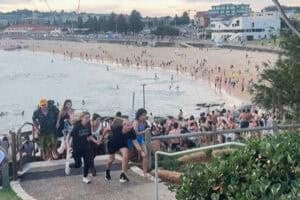Despite the PEC electing a leadership that seems to promote 'unity' on the surface, the truth is anything but.

There is no unity in the KwaZulu-Natal ANC and the election of a “united” provincial executive committee is a false deal meant to appease President Cyril Ramaphosa’s opponents to stop them from boycotting the party in the 2019 elections, a political analyst says.
The analyst, Zakhele Ndlovu, from the University of KwaZulu-Natal, said the unanimous election of Jacob Zuma’s leading man, Sihle Zikalala, as provincial chairperson and Mike Mabuyakhulu, a former Ramaphosa campaigner, as his deputy, gave a false impression that unity had been achieved in the province.
In fact, the opposite was true as the Zuma loyalists were still in control and ready to continue with their anti-Ramaphosa agenda, Ndlovu said.
Commenting on the election of the 35-member provincial executive committee (PEC) at the party’s provincial conference held at Durban University of Technology from Thursday to Saturday, Ndlovu said that by going for unity at all cost, Luthuli House had actually papered over the deep cracks in the ANC in KwaZulu-Natal.
The conference elected what was seen as a mixed bag of top-five office bearers comprising Zikalala, Mabuyakhulu, Mdumiseni Ntuli as provincial secretary, Sipho Hlomuka as deputy secretary and Nomusa Dube-Ncube retaining her position as treasurer. Mabuyakhulu defeated a Zuma ally, Willies Mchunu, while Ntuli beat Super Zuma, the former president’s political marksman, for the provincial secretary position.
In fact, Zuma previously publicly said he would like to see the disbanded 2015 PEC returned as it was – a statement that was interpreted as undermining Ramaphosa’s efforts to unite the province.
While some claimed that Mchunu and Super Zuma’s ousting would lessen Zuma’s influence in the province, Ndlovu said Zuma would, in fact, still be in control through Zikalala and Mchunu, who remains premier.
Zikalala surprised many when he called on the ANC top brass to reconsider its decision not to support Zuma during his ongoing corruption and money laundering trial. The former president is facing 16 charges emanating from his alleged involvement in the multibillion-rand arms deal.
The ANC national office discouraged its members from attending the trial and issued a strict instruction that members should only attend in their personal capacity and not wear party regalia. But some members, including senior leaders, defied the order and attended wearing party colours.
Among those who flanked Zuma in the high court in Durban were the Eastern Cape’s Andile Lungisa, Zuma’s former Cabinet ministers Des van Rooyen and Faith Muthambi, former SABC COO Hlaudi Motsoeneng and Umkhonto weSizwe Military Veterans’ Association spokesperson Carl Niehaus.
False unity
Ndlovu said he hoped the small step taken in Durban would represent progress as far as unity was concerned.
“But this is a false picture because you can still see that the Zuma faction is strong.”
The analyst said the opening of the conference by ANC secretary-general Ace Magashule, instead of Ramaphosa, was an acceptance by Luthuli House that the Zuma-ites were still in charge, hence they sang a song questioning “what was Zuma’s sin” (wenzeni uZuma).
Ramaphosa merely came to close the conference to endorse a situation he knew he could not change as his camp had long lost the province to Zuma.
“Damage has been done, there is no unity in the province because everybody wants to look out for their own interests. They (the NEC) have just papered over the cracks; they have forged unity that forced the leadership into a ‘marriage of convenience’ because they want KZN to vote for the party in 2019,” Ndlovu said.
The analyst recalled that after it lost at Nasrec by not getting a single top six position, with its PEC disbanded just prior to the crucial conference, it was rumoured that KwaZulu-Natal vowed to vote for the ANC at provincial level but withhold its votes on the national ballot paper.
It was speculated that the province was mulling over either spoiling the national ballot paper or donating its votes to another party, which they did not name.
“They want KZN ANC members to vote for the ANC nationally; they don’t want them to sabotage Ramaphosa in 2019,” Ndlovu said.
The Zuma faction was regrouping and preparing for 2019, along with their counterparts in the Free State, North West and Eastern Cape who had felt marginalised by the Nasrec electoral outcomes.
“These members would be a huge challenge to Ramaphosa and the ANC in the next elections,” Ndlovu said.
For more news your way, download The Citizen’s app for iOS and Android






